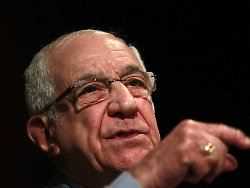Monday, July 26th 2021
Controversial military
Famous leader of the “Carnation Revolution” has died
In April 1974 Portugal rose against the tyranny. The uprising is almost bloodless. One of the leaders has now died. Head of State de Sousa says it is too early to make a historical assessment. Because the deceased also led a terrorist group and only called for a coup a few years ago.
Portugal mourns the loss of what is probably the most legendary and most controversial leader of the “Carnation Revolution” of April 25, 1974: Otelo Saraiva de Carvalho died on Sunday at the age of 84 in the military hospital in Lisbon. During a wake in the church of the military academy, the Portuguese would be able to say goodbye to the retired colonel tomorrow, Tuesday, in the capital, the media reported, citing the “April 25 Association”. The funeral will take place on Wednesday, it said.
The “Carnation Revolution” ended the tyranny of Marcelo Caetano in 1974 and the “Estado Novo”, the “New State”, which dictator António Salazar (1989-1970) proclaimed in 1933. The almost bloodless uprising owes its name to the flowers that the cheering crowd put in the gun barrels of the soldiers of the revolution.
Saraiva de Carvalho has been recognized by the media such as the renowned newspapers “Público” and “Diario de Notícias” as the “strategist” and “head” of the insurgent military group that put an end to the oldest dictatorship in Western Europe almost without bloodshed almost 47 years ago. It was not forgotten, however, that the artillery officer was sentenced to 15 years in prison in 1986 as one of the leaders of the left-wing extremist terrorist group “FP 25 de Abril”. In 1991 Saraiva de Carvalho was pardoned.
The man, who unsuccessfully ran for the presidency of his country in 1976, remained politically active until the end of his life. When Portugal had to undergo a strict austerity and reform policy during the euro crisis, he called on the active military to overthrow the then conservative government. It is still too early for the story to pay tribute to Saraiva de Carvalho “with due distance,” stressed Head of State Marcelo Rebelo de Sousa on the website of the President’s Office. “However, it seems indisputable how important it was on April 25th.”
One of the most important heroes of 1974, Vasco Lourenço, president of the “April 25 Association”, emphasized in his tribute that Saraiva de Carvalho had led the movement against a dictatorship that “led the Portuguese into obscurantism, colonial war and poverty” .
.
